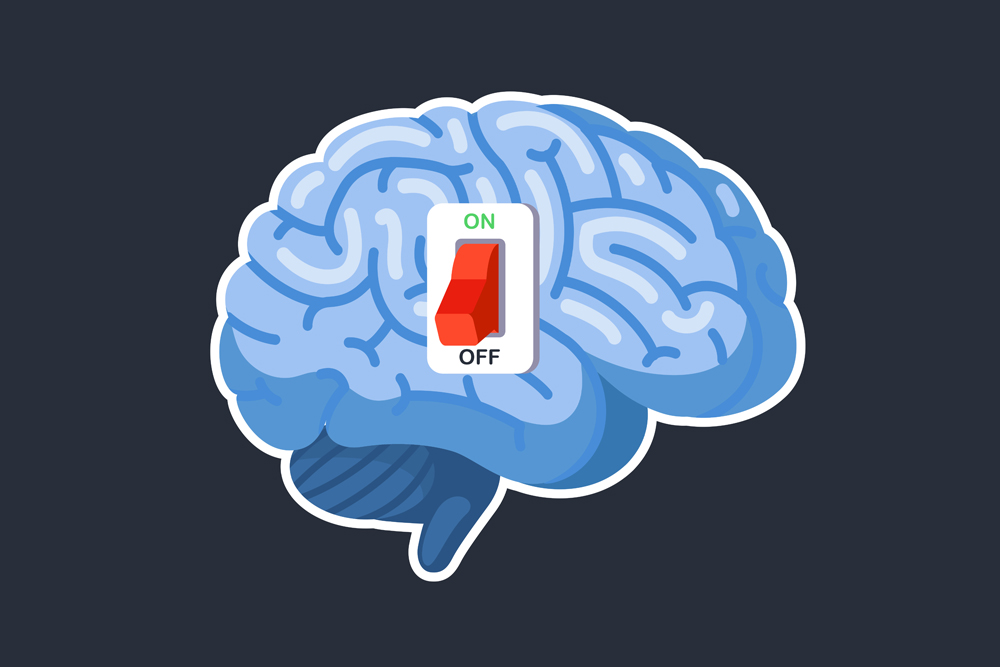By Josh Redd, MS, DABFM, DAAIM, Chiropractic Physician
One of the most common areas of debilitating symptoms we see in our Hashimoto’s hypothyroidism patients is the brain. Hashimoto’s is an autoimmune disease that attacks and destroys the thyroid gland and is the cause of more than 90 percent of hypothyroidism cases in the United States.
There are three main reasons why thyroid patients struggle with brain symptoms:
- Every cell in the body and the brain need thyroid hormone to function. The brain’s neurons aren’t able to function at full capacity when thyroid hormones are low.
- An unmanaged autoimmune condition causes chronic inflammation. The chronic inflammation that so many Hashimoto’s patients struggle with inflames the brain too. This slows down the speed at which the brain operates, makes it function less efficiently, and causes it to degenerate more quickly.
- The brain is a common site of autoimmune attacks, especially in Hashimoto’s patients. When we run comprehensive autoimmune lab panels on our Hashimoto’s patients, the second most common site of attack after the thyroid gland is the brain.
How do you know if any of these factors may be affecting you? See if you have any of these symptoms:
- Fatigue
- Brain fog
- Depression
- Slow mental speed
- Poor brain endurance, meaning you tire easily from reading, driving, working, noisy areas, etc.
- Worsening memory
- Anxiety
- Sleep problems
- Low motivation
- Irritable, grouchy
- Worsening balance
- Drop things easily
- Handwriting getting worse
- Worsening muscle function
These are just a few symptoms of declining brain function that we commonly see in our Hashimoto’s patients.
How low thyroid levels impact the brain
If you think might have low thyroid problems, if you still have thyroid symptoms despite taking thyroid meds, or if it seems like the doctor has to constantly increase your dose of thyroid meds, your brain’s neurons may not be getting enough thyroid hormone. This means each neuron is not going to be able to function optimally and overall brain function slows down and becomes less efficient. This is one reason symptoms like depression, fatigue, and brain fog are so common with Hashimoto’s hypothyroidism.
To optimize your thyroid levels, you need to be aware of several things. First, while you may still need thyroid hormone medication, if your thyroid autoimmunity is out of control, you’ll never find balance with thyroid function.
Next, it means you need to find the right kind of thyroid medication and a dose that works for you.
For instance, many doctors only prescribe a synthetic T4 only medication. However, T4 is the inactive form of thyroid hormone and your body must convert it to T3 for it to be usable by the cells. Most of this conversion happens in the gut and in the liver. This means if you have leaky gut (intestinal permeability) or an unhealthy gut microbiome – the colony of bacterial species that live in your digestive tract and play many important health roles—you may not be making enough T3.
Or, you may also have problems if you have poor liver function as most of the conversion of T4 to T3 happens in the liver. Low thyroid function impairs liver function so that you don’t detoxify optimally and are more prone to gallstones and gallbladder sludge. This can be another reason why your T4 medication is not working great for you.
In my clinic I work with my patients’ doctors to find the best fit for them in terms of thyroid meds. Many patients do better with the addition of a T3 thyroid hormone replacement. Some do better with bioidentical thyroid hormone replacement versus synthetic. Also, be aware that some brands of thyroid hormone meds have fillers such as cornstarch that may trigger an immune reaction in you. Luckily, there is now a thyroid hormone on the market called Tirosint that is free of fillers and may be a good fit if you react to the fillers that are commonly used in medications.
Work with your prescribing physician to find the best thyroid medication option for you while also working on taming inflammation and thyroid autoimmunity.
Contact my office to discuss if your brain symptoms might be related to Hashimoto’s hypothyroidism.
To learn more about Hashimoto’s and other factors that can cause hypothyroidism, read my book The Truth About Low Thyroid contact one of our wellness centers for more information.
About Dr. Redd
Josh Redd, MS, DABFM, DAAIM, is a chiropractic physician and author of the Amazon bestselling book The Truth About Low Thyroid. Dr. Redd owns seven functional medicine clinics in the western United States and sees patients from across the country and around the world who are suffering from challenging autoimmune, endocrine and neurological disorders. Dr. Redd also teaches thousands of health care practitioners about functional medicine and immunology, thyroid health, neurology, lab testing, and more.

